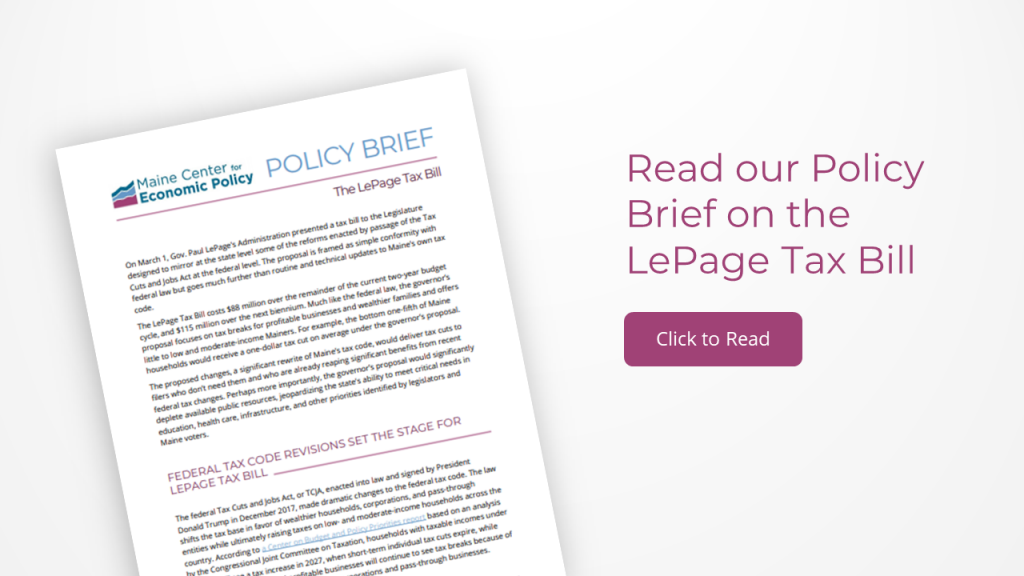Summary:
On March 1, Gov. Paul LePage’s Administration presented a tax bill to the Legislature designed to mirror at the state level some of the reforms enacted by passage of the Tax Cuts and Jobs Act at the federal level. The proposal is framed as simple conformity with federal law but goes much further than routine and technical updates to Maine’s own tax code.
The LePage Tax Bill costs $88 million over the remainder of the current two-year budget cycle, and $115 million over the next biennium. Much like the federal law, the governor’s proposal focuses on tax breaks for profitable businesses and wealthier families and offers little to low and moderate-income Mainers. For example, the bottom one-fifth of Maine households would receive a one-dollar tax cut on average under the governor’s proposal.
The proposed changes, a significant rewrite of Maine’s tax code, would deliver tax cuts to filers who don’t need them and who are already reaping significant benefits from recent federal tax changes. Perhaps more importantly, the governor’s proposal would significantly deplete available public resources, jeopardizing the state’s ability to meet critical needs in education, health care, infrastructure, and other priorities identified by legislators and Maine voters.




